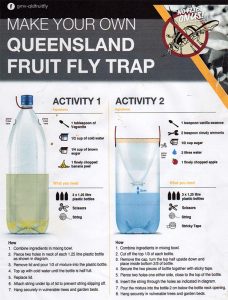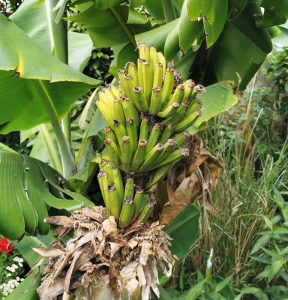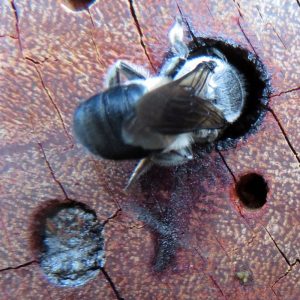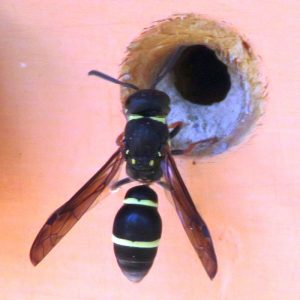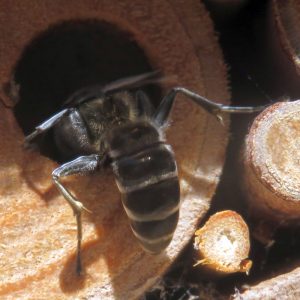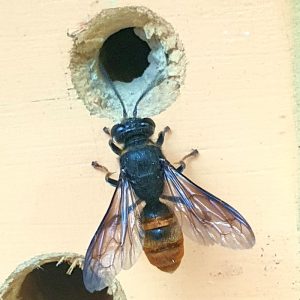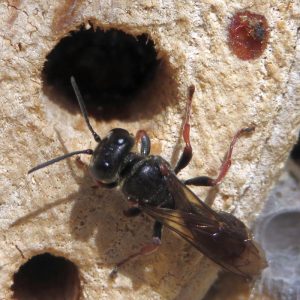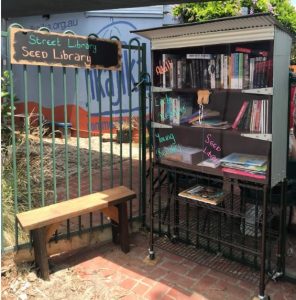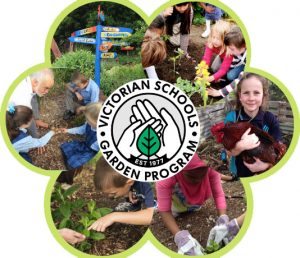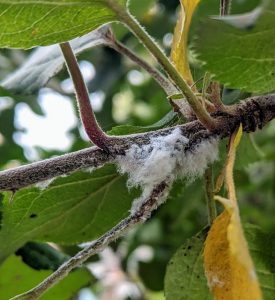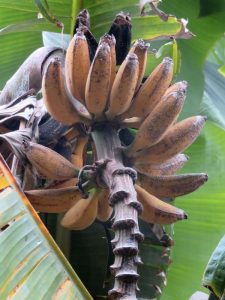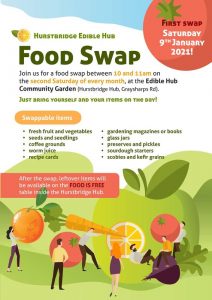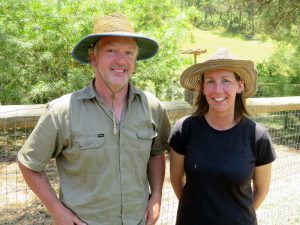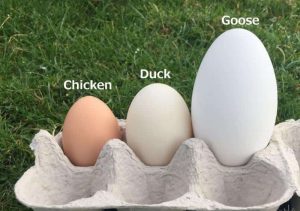Thanks to all the people who have contributed to this week’s newsletter: Angelo Eliades, Anjana Mukherji, Clare Quinlan, Deb Graham, James Petty, Lee Hirsh, Megan Goodman, Mick Sheard, Robin Gale-Baker and Susan Arnold.
Robin’s veggie growing tip of the month
In general usage, the phrase ‘going to seed’ means ‘to deteriorate’. It is derived from the natural act of annual and bi-annual plants going to seed at the end of their life. Once a plant has lived out its lifecycle, it tries to perpetuate itself by producing seeds and these fall to the ground or are wind blown or transported underfoot by animals to another location. A certain number of these seeds will germinate, ensuring the plant’s survival.
There is a second reason, however, that plants ‘go to’ or ‘run to’ seed or ‘bolt’ and that is stress.
Stress can be caused by a number of things:
- Lack of moisture in the soil.
- Extreme weather especially hot weather.
- Planting out of season or too early.
- Unsuitable soil.
- Disease.
The rest of this article focuses on the first three inter-related factors above, namely lack of moisture in the soil, hot weather and planting at the wrong time.
Chronic lack of soil moisture will mean that no amount of watering in hot weather will be sufficient to hydrate plants. The soil will have become hydrophobic (water repellent) and the roots of the plants will have been stunted by insufficient water. Already, you will have unhealthy plants. If your soil has been kept moist, and you significantly ‘up’ your watering during extreme heat, your plants should be fine but plants are often under-watered during summer, especially during periods of high temperatures, or they are watered after the heat, when they have already wilted. It is essential that beds are hydrated for a number of days before heat waves and, during heat waves, watered deeply each evening.
The combination of lack of water and of hot weather in general (and hot weather extremes in particular) leads plants to ‘believe’ that they are dying. They therefore try to reproduce, and ‘bolt’ rather than producing or maintaining an edible part. Hearting vegetables (such as brassicas (cauliflower, cabbage, broccoli) and lettuce) will split, pushing up a flower which will produce seeds. Stem vegetables (including celery, celeriac and kohlrabi) and bulbs (such as onions) will produce hard, woody stems. Root vegetables will transform their juicy roots to a woody ones.
Note that, whilst you can save the seeds produced by a plant when it bolts, there are usually fewer seeds than when that plant flowers at the end of its lifecycle.
To prevent bolting, prepare your soil well, incorporating compost for water retention, hydrate the soil through generous, deep watering from the time you plant out, shade the plant from the hot sun with a shade structure or a piece of old sheet or fabric draped over the garden bed, or even set up a beach umbrella. If you can keep plants cool, especially their roots, they will continue to grow healthily. Shade also helps prevent the soil drying out.
A further factor that you can control is when you plant your seeds or seedlings. Before the advent of climate changes, Spring (September, October, November) was warm, Summer (December, January, February) was hot and Autumn (March, April, May) was cool. These days, March and April can be very hot so it is worth delaying the planting of autumn crops till late April or early May or later if it is still hot. Have your seedlings ready in pots and, the moment the weather breaks, plant them out. Remember that autumn and winter crops are cool-weather crops so planting them in hot weather is self defeating.
Read more of Robin’s articles about growing techniques.
Meg’s garden this month
[Meg, who contributed weekly articles to this newsletter during the pandemic, is back and will be writing monthly articles for us during 2021. No longer ‘Meg’s social isolation week’, but now ‘Meg’s garden this month’. Thanks, Meg!]
Under the sharp gaze of some king parrots in the gum trees, Guy and I discussed a monthly contribution to the newsletter this year to reflect the seasons in the garden. I had just been provided with a tour of Guy’s acre garden with its various garden ‘rooms’ and large areas devoted to edibles. The view of the 5m high banana trees was relished despite misty rain and the beds of ripe perennial tree chillies were a highlight in contrast to my chillies and capsicums that are struggling to grow in this cool wet summer. Like mine, Guy’s tomatoes hang green on the vine, but are close to ripening. We agreed that the usual summer vegetables are slow this year and I’m sure that, like us, many of you are still anticipating the summer tomato harvest.
In my garden, the wet summer has also brought fungal problems to my stone fruit trees. The apricots have been able to avoid it, but I have had to pick them a little under-ripe (they do ripen after picking). Those affected get cut up and frozen for jam making. The dwarf beans have never produced so well and daily picking is needed. My zucchinis and cucumbers are also doing well compared to last year and, after a few days away, I have a large cluster of over-sized ones on display on the kitchen bench.
Zucchini and pine nut salad
2 green and 2 yellow zucchinis (or whatever you have), very thinly sliced lengthways into ribbons
1 teaspoon finely chopped tarragon or other herb (e.g. savoury)
1 tablespoon olive oil
1 tablespoon white wine vinegar
Salt and pepper to taste
¼ cup pine nuts
Shaved parmesan cheese to serve
Lightly toast the pine nuts in a frypan.
Mix together the herbs, olive oil, vinegar and salt and pepper in a jar to make a dressing.
Place the zucchini on a serving platter/bowl and toss with dressing. Leave for 10-15 mins until the zucchini starts to soften.
Sprinkle over with the pine nuts and and parmesan.
Yes – you did know – tiny white bugs
Last week, Susan Arnold wrote in asking for advice about her veggies being covered in tiny white bugs with wings. Several of you have replied and there is broad agreement that the bugs in question are whitefly:
Susan (replying to her own question): “I have done some investigating myself and the bugs I have are whitefly. I have found that vegetable oil combined with dishwasher liquid diluted with warm water in a spray bottle works a treat. I have sprayed my beans, tomatoes, zucchinis and cucumbers and the bugs are now mostly (95%) dead. The plants remain lush and healthy days later.”
Angelo Eliades: “Tiny white flying insects that swarm when you spray then with water sound exactly like whitefly. They are tiny moths and can be controlled with eco-oil, neem oil or horticultural soap. Horticultural oils should never be used when the temperatures may reach 30 degC or more, as the leaves will burn, and that sounds like what might have happened with Susan. On really hot days, just hose the bugs off with a moderate pressure spray to reduce their numbers.”
Clare Quinlan: “It sounds like whitefly. A vacuum cleaner can be great to sucking the majority off. Constantly disturbing them is great to, but can get exhausting and boring standing there all day disturbing tiny creatures from eating their dinners. Garlic spray and eco can work but only if it gets on the actual fly apparently. I aim to leave whitefly up to beneficial insects like ladybugs and lacewings. I also leave my fennel to go to flower which creates a ladybug nursery where their numbers grow over summer.”
Anjana Mukherji: “Try 1 litre of tap water 2 drops of washing liquid soap and 4/5 drops of Neem oil. Shake well and spray.”
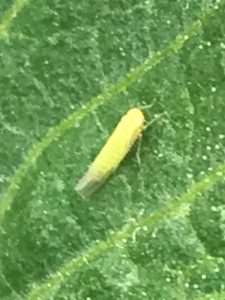 James Petty: “I have had similar problems. They fed on my tomatoes, zucchini, pumpkin, eggplants, jerusalem artichoke (stems and leaves), rocket, parsley, coriander, rosemary, carrots, parsnip, potatoes, cornflowers, and everlasting daisies. They killed several potato plants and (I suspect but don’t know) were the vector for a virus in my tomatoes. I initially assumed that they were whitefly, except that they weren’t white. However, after I sent them a photo, Museums Victoria IDed them as probably vegetable leafhopper (Austroasca viridigrisea). Here is AusVeg guide to the vegetable leafhopper.
James Petty: “I have had similar problems. They fed on my tomatoes, zucchini, pumpkin, eggplants, jerusalem artichoke (stems and leaves), rocket, parsley, coriander, rosemary, carrots, parsnip, potatoes, cornflowers, and everlasting daisies. They killed several potato plants and (I suspect but don’t know) were the vector for a virus in my tomatoes. I initially assumed that they were whitefly, except that they weren’t white. However, after I sent them a photo, Museums Victoria IDed them as probably vegetable leafhopper (Austroasca viridigrisea). Here is AusVeg guide to the vegetable leafhopper.
“As for treatment, they resisted everything I tried: horticultural oil, neem, coffee spray – nothing worked. The most effective was a combination of vacuuming (daily) and ‘puffing’ diatomaceous earth all over the plants (leaves, stem, underside leaves). However, this took a long time and the puffing is also likely to impact beneficial bugs like predators and pollinators. And within a week, the hoppers were back to full numbers anyway. I have resigned myself to their presence and tried to reduce their habitat. They seem to love rosemary so I pruned it back to a stump.”
More on Queensland Fruit Fly
Pam Jenkins has written in to suggest that you read this report from Horticulture Innovation Australia. Pam adds “it looks like there may be some hope in integrating kaolin with exclusion netting especially for the home gardener … Kaolin looks like a great alternative to the previous regimes of cover spraying with toxic chemicals. It is going to affect pest insects that inject eggs, suck or chew on fruit and, so far, my reading suggests that it has little impact on beneficial insects and bees unless it is sprayed directly on to them. It has the added bonus of reflecting sunlight so helps prevent sunburn and slows evaporation from leaves in really hot weather. I also read that it doesn’t affect photosynthesis but I haven’t had it on leaves long enough to confirm that for myself.”
Dark Horse Cafe, Wine & Produce in Watsons Creek
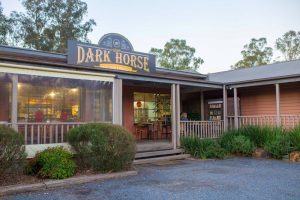 Here’s a question for your next trivia night: what suburb in North East Melbourne has the smallest population and what is that population? Answer: Watsons Creek, with a population of just 51. Historically, Watsons Creek has actually been quite well known, at least in some circles, because of its antiques shop on the road from Kangaroo Ground to Yarra Glen. A few years ago, that antique shop closed and was replaced by Dark Horse Cafe, Wine & Produce which, as the name suggests, is both a cafe and a produce store, both of which are open Wednesday to Sunday. There is also an art gallery with local art next door.
Here’s a question for your next trivia night: what suburb in North East Melbourne has the smallest population and what is that population? Answer: Watsons Creek, with a population of just 51. Historically, Watsons Creek has actually been quite well known, at least in some circles, because of its antiques shop on the road from Kangaroo Ground to Yarra Glen. A few years ago, that antique shop closed and was replaced by Dark Horse Cafe, Wine & Produce which, as the name suggests, is both a cafe and a produce store, both of which are open Wednesday to Sunday. There is also an art gallery with local art next door.
Of particular relevance to this newsletter, the produce store sells quite a lot of local produce, including from
Buttermans Track (St Andrews); Coldstream Brewery; House of Gingerbread (Warrandyte); Kings of Kangaroo Ground; Napoleone Brewery & Ciderhouse (Coldstream); Rob Dolan Wines (Warrandyte South); Warrandyte Berry Farm (Warrandyte South); and Yarra Valley Gourmet Foods (Seville). Read their Local Food Directory page. Welcome Sharon and colleagues!
News about local food organisations – Imbue Distillery
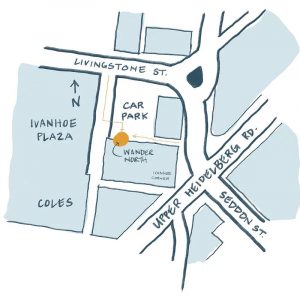 Imbue Distillery have opened a tasting room and boutique bottleshop in Ivanhoe. It is called Wander North and is at 13/149 Upper Heidelberg Road, Ivanhoe. It is open on Fridays, Saturdays and Sundays, each midday-8pm.
Imbue Distillery have opened a tasting room and boutique bottleshop in Ivanhoe. It is called Wander North and is at 13/149 Upper Heidelberg Road, Ivanhoe. It is open on Fridays, Saturdays and Sundays, each midday-8pm.
Local food organisations in the news – 2020 Northern Business Achievement Awards
The 2020 Northern Business Achievement Awards were recently announced and they include four food organisations from North East Melbourne:
- Blue Pear Pantry from North Warrandyte (Best Start-Up or Microbusiness).
- Floridia Cheese from Thomastown (Business of the Year).
- Moon Rabbit cafe from Preston (Philanthropy and Community Service Award).
- Mocopan Coffee from Preston (Workplace Diversity Award).
What seeds to plant in February
Here is a list (see the planting guide for more detail):
Warm season veggiesBeans |
Cool season veggiesBroccoli |
Leafy greensLettuce |
RootsBeetroot |
OtherChives |
In principle, you can start planting some of the brassicas (broccoli, Brussels sprouts and cauliflower) but perhaps it would be better to wait until March.
 Every newsletter needs a good picture
Every newsletter needs a good picture
Korean ChangKi Chung composes, and then photographs, stacks of food.
Which link was clicked most times in the last newsletter?
The most popular link was the DIVRS urban food program page asking for volunteers.
Proverb (or phrase) of the month
Pie in the sky Meaning: something good that is very unlikely to happen.. This phrase was coined by someone called Joe Hill in 1911 in a song entitled The Preacher and the Slave, which was a parody of the hymn Sweet By-and-By. The full phrase was “you’ll get pie in the sky when you die” and was Hill’s criticism of the Salvation Army’s philosophy of salvation of souls rather than the feeding of the hungry. The phrase was first used figuratively in its present meaning during the second world war.
Incidentally, Joe Hill was executed for murder in 1915 but, as discussed in Wikipedia, may well have been innocent. His will was written as a song and started with the couplet “My will is easy to decide, for there is nothing to divide.”
Read more food-related proverbs.
Gardening quote of the month
“Bread feeds the body, indeed, flowers feed also the soul.” by The Koran.
Joke (or pun) of the week
Submitted by Lee Hirsh: Did you hear about the cheese factory that exploded in France? All that was left was de brie.
Upcoming events – website calendars
Website calendars
By type of event: All once-off events, Cooking, Everything else, Free.
By Council area: Banyule, Boroondara, City of Yarra, Darebin, Manningham, Maroondah, Moreland, Nillumbik, Whitehorse, Whittlesea and Yarra Ranges.
When looking at a calendar, remember that you can:
- Filter the list of events by suburb or suburbs using the green ‘location’ button top left.
- Show all the event descriptions using the ‘expand all’ button top right.
Upcoming events – not cooking
Newly announced
- Introduction to seed saving: Thursday, 11th February, 7-9pm; free; online.
- Beeswax wraps: Saturday, 13th February, 10-11am; $25 ($25 per hour); Kinglake.
- Farm tour of Joe’s Market Garden: Saturday, 20th February, 10.30-11.30am; $22 ($11 per hour); Coburg.
- Compost and worm farm workshop: Friday, 26th February, 10-11am; free; Greensborough.
- Mushroom cultivation workshop: Saturday, 20th March, 1-4pm; $70 ($23 per hour); Park Orchards.
- Bakery Hill whisky distillery tour and tasting: Sunday, 21st March, 2-3.30pm; $59 ($40 per hour); Bayswater North.
January
- Set up and maintain a worm farm: Saturday, 30th January, 2-3pm; free; Edendale.
February
- Summer fruit tree pruning: Saturday, 6th February, 9am-1pm; $75 ($19 per hour); Edendale.
- Dan and Liz’s garden tour: Saturday, 6th February, 10.30am-12.30pm; $10; Montmorency.
- Bee hive tour: Saturday, 7th February, 10.30am-12.30pm; $85 ($43 per hour); Yarrambat.
- Bakery Hill whisky distillery tour and tasting: Sunday, 7th February, 11am-12.30pm; $59 ($40 per hour); Bayswater North.
- Leah and Leo’s garden tour: Sunday, 7th February, 1-3pm; $5; Eltham.
- Permaculture Design Course (100 hours) : starting Wednesday, 10th February, 6.30-9.30pm; $1,980; CERES.
- The joy of backyard chooks: Thursday, 11th February, 6.30-9pm; $50 ($20 per hour); Bulleen Art and Garden.
- Create your nutritional blueprint (6 sessions): starting Saturday, 13th February, 2-4pm; $175 ($15 per hour); Warrandyte.
- Dianne and John’s garden tour: Sunday, 14th February, 10.30am-12.30pm; $5; Eltham.
- Intro to urban farming (8 sessions): starting Tuesday, 16th February, 9am-1pm; $131 ($4 per hour); Preston.
- Beginners backyard beekeeping: Friday, 19th February, 10am-3pm; $220 ($44 per hour); CERES.
- Complete urban farmer (14 sessions) : starting Saturday, 20th February, 9am-3pm; $880 for ACFE eligible participants ($10 per hour); CERES.
- Growing nutrient dense food: Saturday, 20th February, 10am-3pm; $110 ($22 per hour); CERES.
- Bee hive tour: Saturday, 20th February, 10.30am-12.30pm; $85 ($43 per hour); Yarrambat.
- Stuart and Christine’s garden tour: Sunday, 21st February, 10am-midday; $10; Eltham.
- Bakery Hill whisky distillery tour and tasting: Sunday, 21st February, 11am-12.30pm; $59 ($40 per hour); Bayswater North.
- Permaculture Design Course (84 hours) : starting Tuesday, 23rd February, 9am-4.30pm; $595; Kinglake.
- Heide honey: Wednesday, 24th February, 11am-12.30pm; $15 ($10 per hour); Bulleen.
- Healthy productive compost and worms: Thursday, 25th February, 6.30-9pm; $50 ($20 per hour); Bulleen Art and Garden.
- Nina and Perrin’s garden tour: Saturday, 27th February, 10.30am-12.30pm; $5; Eltham.
- Home composting for beginners: Saturday, 27th February, 2-3.30pm; free; Edendale.
March
- Honey bees (for primary schoolers): Wednesday, 3rd March, 4-5pm; $5; Mount Evelyn.
- The art of espalier: Thursday, 4th March, 6.30-9pm; $55 ($22 per hour); Bulleen Art and Garden.
- Bee hive tour: Saturday, 6th March, 10.30am-12.30pm; $85 ($43 per hour); Yarrambat.
- Bakery Hill whisky distillery tour and tasting: Sunday, 7th March, 2-3.30pm; $59 ($40 per hour); Bayswater North.
- Complete urban farmer (14 sessions): starting Wednesday, 10th March, 9am-3pm; $880 for ACFE eligible participants ($10 per hour); CERES.
- Produce in pots: Thursday, 11th March, 6.30-9pm; $55 ($22 per hour); Bulleen Art and Garden.
- Beekeeping workshop: Saturday, 13th March, 2-4.30pm; $85 ($34 per hour); Brunswick East.
- Beeswax wraps: Sunday, 14th March, 10am-midday; $45 ($23 per hour); Park Orchards.
- Sowing edible crops: Tuesday, 16th March, 4-5pm; $5; Chirnside Park.
Upcoming events – cooking
Newly announced
- Chinese vegetarian cooking workshop: Sunday, 7th February, 1-2.30pm; $5; Greensborough.
- Pinot + pasta I like too much: Sunday, 14th February, 11am-3pm; $159 ($40 per hour); Warrandyte South.
- Perfect paella: Friday, 19th February, 6-9pm; $95 ($32 per hour); Surrey Hills.
- Delicious dumplings with Bec Cassar: Saturday, 27th February, 10am-1pm; $66 ($22 per hour); Kinglake.
- A night in Rome: Thursday, 18th March, 6.30-10.30pm; $105 ($26 per hour); Richmond.
- Sourdough bread workshop: Saturday, 20th March, 9am-11.30pm; $165 ($66 per hour); Brunswick East.
- Wild fermentation class (pickling and sauerkraut) : Saturday, 20th March, 10am-12.30pm; $75 ($30 per hour); Dixons Creek.
- Beginners bread making: Sunday, 21st March, 8am-2pm; $190 ($32 per hour); Abbotsford.
- Master Vietnamese finger food: Sunday, 21st March, 10.30am-3pm; $160 ($36 per hour); Panton Hill.
- Naples and the Amalfi Coast: Tuesday, 23rd March, 6.30-10.30pm; $105 ($26 per hour); Richmond.
January
- Kids in the kitchen: Thursday, 21st January, 3-6pm; $55 ($18 per hour); Panton Hill.
- Wild fermentation class (pickling and sauerkraut): Saturday, 23rd January, 10am-12.30pm; $75 ($30 per hour); Dixons Creek.
- Plant-based desserts workshop: Sunday, 24th January, 11am-2pm; $120 ($40 per hour); Eltham.
- Blokes in the kitchen: Friday, 29th January, 8am-midday; $35 ($8 per hour); Surrey Hills.
- Beginners bread making: Sunday, 31st January, 8am-2pm; $190 ($32 per hour); Abbotsford.
February
- The ultimate biscuit class: Tuesday, 2nd February, 10am-3pm; $160 ($32 per hour); Blackburn.
- Sourdough bread workshop: Saturday, 6th February, 9am-11.30pm; $165 ($66 per hour); Brunswick East.
- Wild fermentation class (pickling and sauerkraut): Saturday, 6th February, 10am-12.30pm; $75 ($30 per hour); Dixons Creek.
- Chocolate discovery class: Saturday, 6th February, 12.30-1.30pm; $48 ($48 per hour); Yarra Glen.
- Become a junior chocolatier: Saturday, 6th February, 2-2.45pm; $40 ($53 per hour); Yarra Glen.
- Become a junior chocolatier: Saturday, 6th February, 3-3.45pm; $40 ($53 per hour); Yarra Glen.
- Cook Indian by the creek: Saturday, 6th February, 4-7pm; $149 ($50 per hour); Diamond Creek.
- Beginners bread making: Sunday, 7th February, 8am-2pm; $190 ($32 per hour); Abbotsford.
- Fermenting masterclass: Sunday, 7th February, 10am-5pm; $145 for half a day ($48 per hour) or $230 for the full day ($38 per hour); Hurstbridge.
- Cafe and kitchen cooking with Liz (8 sessions): starting Thursday, 11th February, 9.30am-midday; $50 ($3 per hour); Lower Templestowe.
- Vietnamese cooking masterclass: Friday, 12th February, 6-9pm; $135 ($45 per hour); Surrey Hills.
- Truffle and praline workshop: Friday, 12th February, 6-10pm; $180 ($45 per hour); Blackburn.
- Fermenting masterclass: Saturday, 13th February, 10am-5pm; $145 for half a day ($48 per hour) or $230 for the full day ($38 per hour); Lilydale.
- Fermenting masterclass: Sunday, 14th February, 10am-5pm; $145 for half a day ($48 per hour) or $230 for the full day ($38 per hour); Fitzroy.
- Lets make dumplings: Sunday, 14th February, 11am-3pm; $125 ($31 per hour); Alphington.
- The ultimate biscuit class: Tuesday, 16th February, 10am-3pm; $160 ($32 per hour); Blackburn.
- Demystifying bread: Thursday, 18th February, 6.30-9pm; $50 ($20 per hour); Park Orchards.
- Sourdough bread workshop: Saturday, 20th February, 9am-11.30pm; $165 ($66 per hour); Brunswick East.
- Wild fermentation class (pickling and sauerkraut) : Saturday, 20th February, 10am-12.30pm; $75 ($30 per hour); Dixons Creek.
- Become a junior chocolatier: Saturday, 20th February, 3-3.45pm; $40 ($53 per hour); Yarra Glen.
- Beginners bread making: Sunday, 21st February, 8am-2pm; $190 ($32 per hour); Abbotsford.
- Men in the kitchen: Monday, 22nd February, 6.30-9pm; $32 ($13 per hour); Yarra Glen.
- Ladies day in the kitchen: Thursday, 25th February, 9.30-midday; $32 ($13 per hour); Yarra Glen.
- Blokes in the kitchen: Friday, 26th February, 8am-midday; $35 ($8 per hour); Surrey Hills.
- Middle Eastern cooking: Friday, 26th February, 10am-1.30pm; $70 ($20 per hour); Park Orchards.
- Seasonal ferments: kimchi + kombucha : Saturday, 27th February, 9-11.30am; $185 ($74 per hour); Brunswick East.
- Summer preserves: Saturday, 27th February, 9.30am-12.30pm; $55 ($18 per hour); Bulleen Art and Garden.
- Deluxe Asian seafood salads: Saturday, 27th February, 10.30am-3pm; $180 ($40 per hour); Panton Hill.
- Artisan bread making: Sunday, 28th February, 8am-2pm; $190 ($32 per hour); Abbotsford.
- Learn to make bao bun: Sunday, 28th February, 11am-2pm; $110 ($37 per hour); Alphington.
March
- The ultimate biscuit class: Tuesday, 2nd March, 10am-3pm; $160 ($32 per hour); Blackburn.
- Sourdough bread workshop: Saturday, 6th March, 9am-11.30pm; $165 ($66 per hour); Brunswick East.
- Wild fermentation class (pickling and sauerkraut): Saturday, 6th March, 10am-12.30pm; $75 ($30 per hour); Dixons Creek.
- Chocolate discovery class: Saturday, 6th March, 12.30-1.30pm; $48 ($48 per hour); Yarra Glen.
- Dumplings workshop: Friday, 12th March, 10am-12.30pm; $90 ($36 per hour); Surrey Hills.
- Growing and cooking with bushfoods: Saturday, 13th March, 10am-3pm; $110 ($22 per hour); CERES.
- Tea making workshop: Saturday, 13th March, 1-3pm; $80 ($40 per hour); Surrey Hills.
- Beginners bread making: Sunday, 14th March, 8am-2pm; $190 ($32 per hour); Abbotsford.
- Lets make dumplings: Sunday, 14th March, 11am-3pm; $125 ($31 per hour); Alphington.
- The ultimate biscuit class: Tuesday, 16th March, 10am-3pm; $160 ($32 per hour); Blackburn.
- Sri Lankan cooking class: Tuesday, 16th March, 6-9pm; $90 ($30 per hour); Surrey Hills.
In Richmond
- Vietnamese cooking master class: Friday, 15th January, 2-4pm; $168 ($56 per hour); Richmond.
- Thai cooking master class : Friday, 15th January, 6.30-9.30pm; $168 ($56 per hour); Richmond.
- Dumpling party: Saturday, 16th January, 10am-midday; $111 ($56 per hour); Richmond.
- Korean cooking master class: Saturday, 16th January, 6.30-9.30pm; $168 ($56 per hour); Richmond.
- Dumpling party: Sunday, 17th January, 10am-midday; $111 ($56 per hour); Richmond.
- Mexican cooking master class: Sunday, 17th January, 2-5pm; $168 ($56 per hour); Richmond.
- Spanish cooking master class: Sunday, 17th January, 6.30-9.30pm; $168 ($56 per hour); Richmond.
- Dumpling party: Thursday, 21st January, 6.30-8.30pm; $111 ($56 per hour); Richmond.
- Street food of Asia: Friday, 22nd January, 2-4.30pm; $168 ($67 per hour); Richmond.
- Japanese cooking master class: Friday, 22nd January, 6.30-9.30pm; $189 ($63 per hour); Richmond.
- Dumpling party: Saturday, 23rd January, 10am-midday; $111 ($56 per hour); Richmond.
- Indian cooking master class: Saturday, 23rd January, 2-5pm; $168 ($56 per hour); Richmond.
- Indonesian cooking master class: Saturday, 23rd January, 6.30-9.30pm; $168 ($56 per hour); Richmond.
- Dumpling party: Sunday, 24th January, 10am-midday; $111 ($56 per hour); Richmond.
- Italian cooking master class: Sunday, 24th January, 2-5pm; $168 ($56 per hour); Richmond.
- Dumpling party: Thursday, 28th January, 6.30-8.30pm; $111 ($56 per hour); Richmond.
- Pizza making party: Friday, 29th January, 2-4pm; $127 ($64 per hour); Richmond.
- Indian cooking master class: Friday, 29th January, 6.30-9.30pm; $168 ($56 per hour); Richmond.
- Chinese cooking master class: Saturday, 30th January, 2-5pm; $168 ($56 per hour); Richmond.
- Going native Australia: Saturday, 30th January, 6.30-9pm; $189 ($76 per hour); Richmond.
- Dumpling party: Sunday, 31st January, 10am-midday; $111 ($56 per hour); Richmond.
- Asian cooking with parents and kids: Sunday, 31st January, 2-4pm; $91 ($46 per hour); Richmond.
- Nonna’s comfort food (Italian): Tuesday, 2nd February, 6.30-10.30pm; $105 ($26 per hour); Richmond.
- Dumpling party: Thursday, 4th February, 6.30-8.30pm; $111 ($56 per hour); Richmond.
- Chinese cooking master class: Friday, 5th February, 6.30-9.30pm; $168 ($56 per hour); Richmond.
- Nonna’s comfort food (Italian): Friday, 5th February, 6.30-10.30pm; $105 ($26 per hour); Richmond.
- Dumpling party: Saturday, 6th February, 10am-midday; $111 ($56 per hour); Richmond.
- Thai cooking master class: Saturday, 6th February, 2-5pm; $168 ($56 per hour); Richmond.
- Dumpling party: Sunday, 7th February, 10am-midday; $111 ($56 per hour); Richmond.
- Vietnamese cooking master class: Sunday, 7th February, 2-4pm; $168 ($56 per hour); Richmond.
- Japanese cooking master class: Sunday, 7th February, 6.30-9.30pm; $189 ($63 per hour); Richmond.
- Nonna’s comfort food (Italian): Tuesday, 9th February, 6.30-10.30pm; $105 ($26 per hour); Richmond.
- Dumpling party: Thursday, 11th February, 6.30-8.30pm; $111 ($56 per hour); Richmond.
- Thai cooking master class: Friday, 12th February, 6.30-9.30pm; $168 ($56 per hour); Richmond.
- Nonna’s comfort food (Italian): Friday, 12th February, 6.30-10.30pm; $105 ($26 per hour); Richmond.
- Dumpling party: Saturday, 13th February, 6.30-8pm; $111 ($56 per hour); Richmond.
- Japanese cooking master class: Saturday, 13th February, 2-5pm; $189 ($63 per hour); Richmond.
- Korean cooking master class: Saturday, 13th February, 6.30-9.30pm; $168 ($56 per hour); Richmond.
- Dumpling party: Sunday, 14th February, 10am-midday; $111 ($56 per hour); Richmond.
- Mexican cooking master class: Sunday, 14th February, 2-5pm; $168 ($56 per hour); Richmond.
- Spanish cooking master class: Sunday, 14th February, 6.30-9.30pm; $168 ($56 per hour); Richmond.
- Pasta e basta!: Tuesday, 16th February, 6.30-10.30pm; $105 ($26 per hour); Richmond.
- Dumpling party: Thursday, 18th February, 6.30-8.30pm; $111 ($56 per hour); Richmond.
- The cuisine of Central Italy: Thursday, 18th February, 6.30-10.30pm; $105 ($26 per hour); Richmond.
- Street food of Asia: Friday, 19th February, 2-4.30pm; $168 ($67 per hour); Richmond.
- Japanese cooking master class: Friday, 19th February, 6.30-9.30pm; $189 ($63 per hour); Richmond.
- Gnocchi in tutta l’Italia: Friday, 19th February, 6.30-10.30pm; $105 ($26 per hour); Richmond.
- Indian cooking master class: Saturday, 20th February, 2-5pm; $168 ($56 per hour); Richmond.
- Indonesian cooking master class: Saturday, 20th February, 6.30-9.30pm; $168 ($56 per hour); Richmond.
- Dumpling party: Sunday, 21st February, 10am-midday; $111 ($56 per hour); Richmond.
- Italian cooking master class: Sunday, 21st February, 2-5pm; $168 ($56 per hour); Richmond.
- Pizza making party: Sunday, 21st February, 6.30-8.30pm; $127 ($64 per hour); Richmond.
- Vegetarian cooking class: Tuesday, 23rd February, 6.30-10.30pm; $105 ($26 per hour); Richmond.
- Dumpling party: Thursday, 25th February, 6.30-8.30pm; $111 ($56 per hour); Richmond.
- Pizza making party: Friday, 26th February, 2-4pm; $127 ($64 per hour); Richmond.
- Indian cooking master class: Friday, 26th February, 6.30-9.30pm; $168 ($56 per hour); Richmond.
- Chinese cooking master class : Saturday, 27th February, 2-5pm; $168 ($56 per hour); Richmond.
- Going native Australia: Saturday, 27th February, 6.30-9pm; $189 ($76 per hour); Richmond.
- Dumpling party: Sunday, 28th February, 10am-midday; $111 ($56 per hour); Richmond.
- Asian cooking with parents and kids: Sunday, 28th February, 2-4pm; $91 ($46 per hour); Richmond.
- Vegan cooking master class: Sunday, 28th February, 6.30-9.30pm; $189 ($63 per hour); Richmond.
- Nonna’s comfort food (Italian): Tuesday, 2nd March, 6.30-10.30pm; $105 ($26 per hour); Richmond.
- Dumpling party: Thursday, 4th March, 6.30-8.30pm; $111 ($56 per hour); Richmond.
- La cucina della Puglia: Thursday, 4th March, 6.30-10.30pm; $105 ($26 per hour); Richmond.
- Chinese cooking master class: Friday, 5th March, 6.30-9.30pm; $168 ($56 per hour); Richmond.
- La cucina della Sardegna: Friday, 5th March, 6.30-10.30pm; $105 ($26 per hour); Richmond.
- Dumpling party: Saturday, 6th March, 10am-midday; $111 ($56 per hour); Richmond.
- Thai cooking master class: Saturday, 6th March, 2-5pm; $168 ($56 per hour); Richmond.
- Street food of Asia: Saturday, 6th March, 6.30-9pm; $168 ($67 per hour); Richmond.
- Dumpling party: Sunday, 7th March, 10am-midday; $111 ($56 per hour); Richmond.
- Vietnamese cooking master class: Sunday, 7th March, 2-4pm; $168 ($56 per hour); Richmond.
- Japanese cooking master class: Sunday, 7th March, 6.30-9.30pm; $189 ($63 per hour); Richmond.
- Sicilian food: Tuesday, 9th March, 6.30-10.30pm; $105 ($26 per hour); Richmond.
- Sicilian food: Thursday, 11th March, 6.30-10.30pm; $105 ($26 per hour); Richmond.
- Vietnamese cooking master class: Friday, 12th March, 2-4pm; $168 ($56 per hour); Richmond.
- Thai cooking master class: Friday, 12th March, 6.30-9.30pm; $168 ($56 per hour); Richmond.
- The cuisine of Central Italy: Friday, 12th March, 6.30-10.30pm; $105 ($26 per hour); Richmond.
- Dumpling party: Saturday, 13th March, 10am-midday; $111 ($56 per hour); Richmond.
- Japanese cooking master class: Saturday, 13th March, 2-5pm; $189 ($63 per hour); Richmond.
- Korean cooking master class: Saturday, 13th March, 6.30-9.30pm; $168 ($56 per hour); Richmond.
- Dumpling party: Sunday, 14th March, 10am-midday; $111 ($56 per hour); Richmond.
- Mexican cooking master class: Sunday, 14th March, 2-5pm; $168 ($56 per hour); Richmond.
- Spanish cooking master class: Sunday, 14th March, 6.30-9.30pm; $168 ($56 per hour); Richmond.
- A seafood feast: Tuesday, 16th March, 6.30-10.30pm; $105 ($26 per hour); Richmond.
- Dumpling party: Thursday, 18th March, 6.30-8.30pm; $111 ($56 per hour); Richmond.
- Street food of Asia: Friday, 19th March, 2-4.30pm; $168 ($67 per hour); Richmond.
- Japanese cooking master class: Friday, 19th March, 6.30-9.30pm; $189 ($63 per hour); Richmond.
- Dumpling party: Saturday, 20th March, 10am-midday; $111 ($56 per hour); Richmond.
- Indian cooking master class: Saturday, 20th March, 2-5pm; $168 ($56 per hour); Richmond.
- Indonesian cooking master class: Saturday, 20th March, 6.30-9.30pm; $168 ($56 per hour); Richmond.
- Dumpling party: Sunday, 21st March, 10am-midday; $111 ($56 per hour); Richmond.
- Italian cooking master class: Sunday, 21st March, 2-5pm; $168 ($56 per hour); Richmond.
- Pizza making party: Sunday, 21st March, 6.30-8.30pm; $127 ($64 per hour); Richmond.


